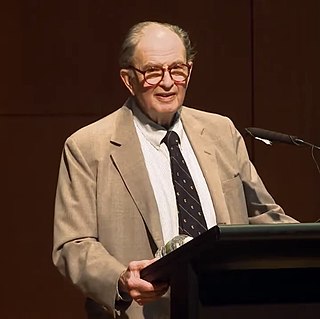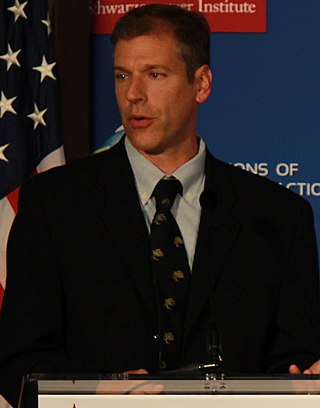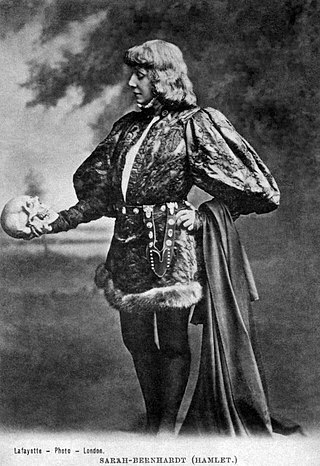
American exceptionalism is the belief that the United States is either distinctive, unique, or exemplary compared to other nations. Proponents argue that the values, political system, and historical development of the U.S. are unique in human history, often with the implication that it is both destined and entitled to play a distinct and positive role on the world stage.

The French paradox is an apparently paradoxical epidemiological observation that French people have a relatively low incidence of coronary heart disease (CHD), while having a diet relatively rich in saturated fats, in apparent contradiction to the widely held belief that the high consumption of such fats is a risk factor for CHD. The paradox is that if the thesis linking saturated fats to CHD is valid, the French ought to have a higher rate of CHD than comparable countries where the per capita consumption of such fats is lower.

Bernard Bailyn was an American historian, author, and academic specializing in U.S. Colonial and Revolutionary-era History. He was a professor at Harvard University from 1953. Bailyn won the Pulitzer Prize for History twice. In 1998 the National Endowment for the Humanities selected him for the Jefferson Lecture. He was a recipient of the 2010 National Humanities Medal.
Exceptionalism is the perception or belief that a species, country, society, institution, movement, individual, or time period is "exceptional". The term carries the implication, whether or not specified, that the referent is superior in some way.
A temporal paradox, time paradox, or time travel paradox, is a paradox, an apparent contradiction, or logical contradiction associated with the idea of time travel or other foreknowledge of the future. While the notion of time travel to the future complies with the current understanding of physics via relativistic time dilation, temporal paradoxes arise from circumstances involving hypothetical time travel to the past – and are often used to demonstrate its impossibility.

Tilted Arc was a controversial public art installation by Richard Serra, displayed in Foley Federal Plaza in Manhattan from 1981 to 1989. It consisted of a 120-foot-long (37 m), 12-foot-high (3.7 m) solid, unfinished plate of rust-covered COR-TEN steel. Advocates characterized it as an important work by a well-known artist that transformed the space and advanced the concept of sculpture, whereas critics focused on its perceived ugliness and saw it as ruining the site. Following an acrimonious public debate, the sculpture was removed in 1989 as the result of a federal lawsuit and has never been publicly displayed since, in accordance with the artist's wishes.
In economics, the Leontief's paradox is that a country with a higher capital per worker has a lower capital/labor ratio in exports than in imports.
Michael Gedaliah Kammen was an American professor of American cultural history in the Department of History at Cornell University. At the time of his death, he held the title "Newton C. Farr professor emeritus of American history and culture".

Gilbert Vivian Seldes was an American writer and cultural critic. Seldes served as the editor and drama critic of the seminal modernist magazine The Dial and hosted the NBC television program The Subject is Jazz (1958). He also wrote for other magazines and newspapers like Vanity Fair and the Saturday Evening Post. He was most interested in American popular culture and cultural history. He wrote and adapted for Broadway, including Lysistrata and A Midsummer Night's Dream in the 1930s. Later, he made films, wrote radio scripts and became the first director of television for CBS News and the founding dean of the Annenberg School for Communication at the University of Pennsylvania.
The following are the Pulitzer Prizes for 1973.

Daniel Merson Kammen is an American scientist, renewable energy expert, and former government figure. He currently serves as Distinguished Professor of Energy in the Energy and Resources Group at the University of California, Berkeley, and holds a dual appointment at the university's Energy and Resources Group and the Goldman School of Public Policy.
The willpower paradox is the idea that people may do things better by focusing less directly on doing them, implying that the direct exertion of volition may not always be the most powerful way to accomplish a goal.

The paradox of fiction, or the paradox of emotional response to fiction, is a philosophical dilemma that questions how people can experience strong emotions to fictional things. The primary question asked is the following: How are people moved by things which do not exist? The paradox draws upon a set of three premises that seem to be true prima facie but upon closer inspection produce a contradiction. Although the emotional experience of fictional things in general has been discussed in philosophy since Plato, the paradox was first suggested by Colin Radford and Michael Weston in their 1975 paper "How Can We Be Moved by the Fate of Anna Karenina?". Since Radford and Weston's original paper, they and others have continued the discussion by giving the problem slightly differing formulations and solutions.

East vs. West – A Hearts of Iron Game is a cancelled grand strategy wargame that was to be set during the Cold War era between 1946 and 1991.

The Transformation of Virginia, 1740–1790 is a 1982 nonfiction book by Australian historian Rhys Isaac, published by the University of North Carolina Press. The book describes the religious and political changes over a half-century of Virginian history, particularly the shift from "the great cultural metaphor of patriarchy" to a greater emphasis on communalism. In this Pulitzer Prize-winning book, Rhys Isaac chronicles dramatic confrontations with the use of many “observational techniques of the cultural anthropologist." Isaac historically recreates and dissects Virginian society when moments of profound changes were taking place. This book is said to be a landmark of cultural history and “has inspired many subsequent historians to incorporate ethnography into their methods of inquiry." Isaac's account of Virginia's historical transformation provides avid descriptions of “Virginia’s social life and customs." Many of the book's original reviewers questioned the absence of “innovative studies of early American religious life" in The Transformation of Virginia. Some reviewers claim that Isaac's “treatment of causality in Virginia history remains The Transformation of Virginia's central weakness."
Patricia van der Kammen is a Dutch politician. She served as a Member of the European Parliament (MEP) for the Party for Freedom from 27 September 2012 to 1 July 2014. She also is a member of the States of North Brabant since 10 March 2011.
The Records of the Past Exploration Society was set up in 1900 by Reverend Henry Mason Baum in Washington, D.C. Membership was made up of academics with degrees, church leaders and professionals, especially those with an interest in archaeology. Baum was particularly interested in biblical archaeology but was also experienced in American antiquities.

Howard Zinn: A Life on the Left is a biography of Howard Zinn, written by Martin Duberman and published in 2012.
The Twelve Labors of Hercules is a series of murals by Washington State artist Michael Spafford commissioned in the early 1980s for the State of Washington. The works were completed in 1981 and permanently installed on the walls of the House of Representatives' chambers at the Washington State Capitol in Olympia; the building was designed in the 1920s to accommodate murals, but they were not funded until the 1970s. The "stark, black-and-white, modernistic" paintings depict "the mythic tasks performed by the Greek hero Hercules".
J. & J. Kammen Music Company, commonly known as the Kammen Brothers, was a sheet music publishing company operated in Brooklyn, New York by Jack and Joseph Kammen from the 1920s to the 1970s. The company published Jewish music as well as non-Jewish music. They owned the rights to some well-known songs such as Bei Mir Bistu Shein. Their Klezmer Fake books were by far the most popular of their time, offering arranged interpretations of Jewish wedding repertoire for non-specialist musicians.












